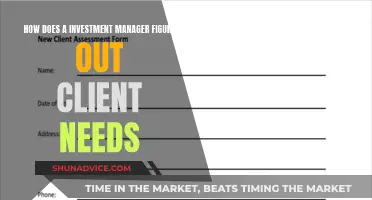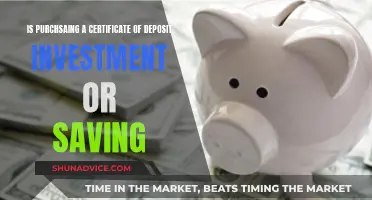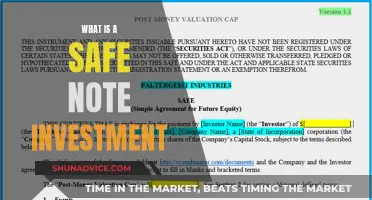
Cash management trusts are a type of investment product that pools funds from individual investors to invest primarily in cash securities. Unlike a typical bank account, a cash management trust account is a managed investment with a few distinct characteristics. The value of each unit in a cash management trust remains constant at $1, and it is considered a relatively low-risk investment option. These trusts generally invest in short-term securities such as government and semi-government securities, bills of exchange, and negotiable certificates of deposit. The funds are managed by a trustee who has a fiduciary duty to act in the best interests of the investors. While cash management trusts offer easy access to funds, investors should be aware that there is a potential risk of capital loss, and withdrawals may be suspended at the manager's discretion.
| Characteristics | Values |
|---|---|
| Investment type | Managed investment |
| Primary investment | Cash securities |
| Unit value | $1 |
| Risk level | Relatively low |
| Initial investment | $5,000 |
| Interest | Calculated daily, paid monthly |
| Interest rates | Competitive |
| Underlying investments | Short-dated securities |
| Management fees | 0.50% p.a. of account balance |
What You'll Learn

Cash securities
The value of each unit in a CMT remains constant at $1, and they are considered a relatively low-risk investment product. The money of individual investors is pooled and then invested in various short-term instruments, providing a convenient avenue for the average investor to access the professional money market.
The underlying investments of CMTs are managed by the CMT manager, who decides where to allocate the pooled funds. These managers have the discretion to invest in 'authorised investments', which are defined in S4 of the 1949 Trustee Act. This section aims to safeguard the interests of beneficiaries by limiting investments to less risky options.
However, in the case of Cash Trusts, the trust deed that customers sign typically allows the trust company to invest in 'authorised investments' without any specific guidelines. This lack of restriction can lead to potential conflicts of interest and other risks, such as investing in illiquid assets or lending to related parties.
It is important for investors to carefully review the Product Disclosure Statement (PDS) provided when opening a CMT account to understand the specific details of the trust's investments and any associated risks.
Portfolio Optimization: Strategies for Maximizing Returns
You may want to see also

Short-dated securities
Government-issued securities, such as Treasury bills, are considered very safe due to the backing of the government's promise to repay. They offer a reliable rate of interest, although the yields may be lower compared to riskier investments.
By investing in short-dated securities, cash management trusts aim to provide investors with stable and liquid investment options while generating returns that are competitive with, or better than, those of savings accounts.
Saving and Investment: Synergistic Strategies for Financial Growth
You may want to see also

Government and semi-government securities
Cash Management Trusts (CMTs) are a type of managed investment where the funds of individual unit holders are pooled, with the primary investment being in cash securities. The underlying investments of a CMT are managed by a trustee, who pools the money of individual investors and invests it in short-dated securities. One such type of security that CMTs invest in is government and semi-government securities.
Government securities are debt instruments issued by a sovereign government, such as the Treasury bonds, bills, and notes issued by the U.S. Treasury. These securities are used to fund day-to-day governmental operations and special projects, and they come with a guarantee of full repayment of the invested principal at maturity. Government securities are considered conservative, low-risk investments due to their government backing and are often viewed as a safe-haven option. They are also easily bought and sold and can be purchased directly from the Treasury Department's website, banks, or through brokers.
Semi-government securities are similar to government securities but are issued by state and territory governments rather than the national government. These securities come with varying maturities and interest rates, and their yields are generally slightly higher than those of government securities due to the additional credit risk associated with state governments. Investors can choose to accept this slightly higher credit risk in exchange for potentially higher returns.
Background Checks: Vetting Investment Managers
You may want to see also

Bills of exchange
A Cash Management Trust (CMT) is a managed investment product where the funds of individual unit holders are pooled. The primary investment is in cash securities, such as short-dated securities that have traditionally required large minimum investments. These include government and semi-government securities, bills of exchange, negotiable certificates of deposit, promissory notes, call deposits and other professional money market investments.
The process of using a bill of exchange involves several steps. Firstly, the drawer (seller) draws the bill and sends it to the drawee (buyer). The drawee then accepts the bill, which is returned to the drawer. The drawer then endorses the bill and delivers it to the payee on the due date. Finally, the drawee pays the bill amount to the payee.
Understanding Investment Management Expenses: What Are the Costs?
You may want to see also

Promissory notes
A promissory note is a written promise by one party (the note's issuer or maker) to pay a specified sum of money to another party (the note's payee) by a specified future date or on demand. The note outlines the terms of the loan, such as the principal debt amount, interest rate, maturity date, payment schedule, the date and place of issuance, and the issuer's signature.
A promissory note is a flexible tool that provides the debtor with additional time to gather funds while offering the creditor a firm promise of payment, backed by a clear legal framework. However, it is important to be aware of the risks involved, such as the risk of non-payment by the due date.
Build a Secure Investment Portfolio Through Duration Matching
You may want to see also
Frequently asked questions
A Cash Management Trust (CMT) is a managed investment product where the funds of individual unit holders are pooled, with the primary investment being in cash securities.
A CMT is a trust fund that holds and manages cash and cash-based investments on behalf of its beneficiaries. The trustee has a fiduciary duty to act in the best interests of the grantor and beneficiaries and manages the fund's assets according to the grantor's directives.
CMTs offer a relatively low-risk investment option with competitive interest rates, providing easy access to funds and regular income through monthly distributions. They can be a convenient vehicle for investors to access the professional money market.
While CMTs offer low-risk capital loss, the repayment of capital invested is not guaranteed. There is also a potential conflict of interest between the trustee and the fund manager, and withdrawals may be suspended in the best interest of CMT account holders.
To invest in a CMT, individuals typically need to deposit a minimum initial amount, which can vary between different trusts. It is important to carefully review the Product Disclosure Statement (PDS) provided by the trust company before making any investment decisions.







